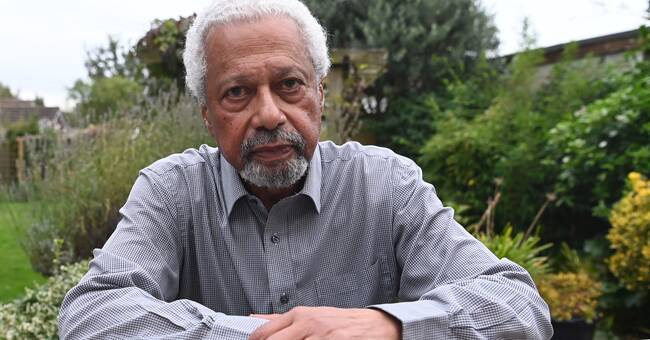Abdulrazak Gurnah is this year's Nobel Laureate in Literature, something that was announced on Thursday.
He received the award for "illuminating the effects of colonialism" and is seen as one of the most influential postcolonial writers from Africa.
When Reuters reporter Guy Faulconbridge meets him in his garden in English Canterbury, the happily surprised author says that he first thought it was a joke when the Swedish Academy called him.
In the interview, the 73-year-old also sharply criticizes Britain's immigration policy.
- It seems to come as a surprise that people fleeing misery want to come to a prosperous country.
Why would that be a surprise?
Who does not want to come to a country of prosperity?
There is a certain cruelty in that treatment, he says.
Criticizes Brexit
Gurnah, who was himself born in Zanziabar, also says that immigrants do not come empty-handed but want to work.
He expresses amazement at their determination and courage to leave their home countries to create a new life.
- Somehow it is constructed as immoral - you know they use this phrase "economic refugee" - as if it were some kind of crime, he says and continues:
- For hundreds of years, millions of Europeans have left their home countries for that reason and invaded the rest of the world for that very reason.
According to Gurnah, Brexit has revealed a "special rudeness" in Britain: behind the vote hides another narrative about overseas immigrants.
Compassion instead of barbed wire
He believes that Europe should rethink its asylum reception.
Gurnah clarifies that he does not advocate "free for all" immigration but opposes an antagonistic and abusive representation of migrants.
- A response to compassion rather than barbed wire and this talk about Europe being destroyed, he says.

